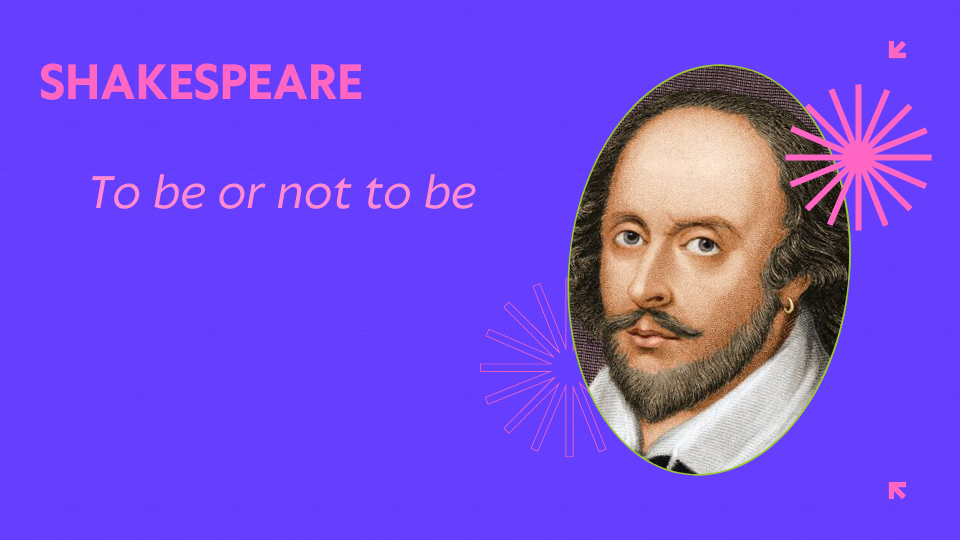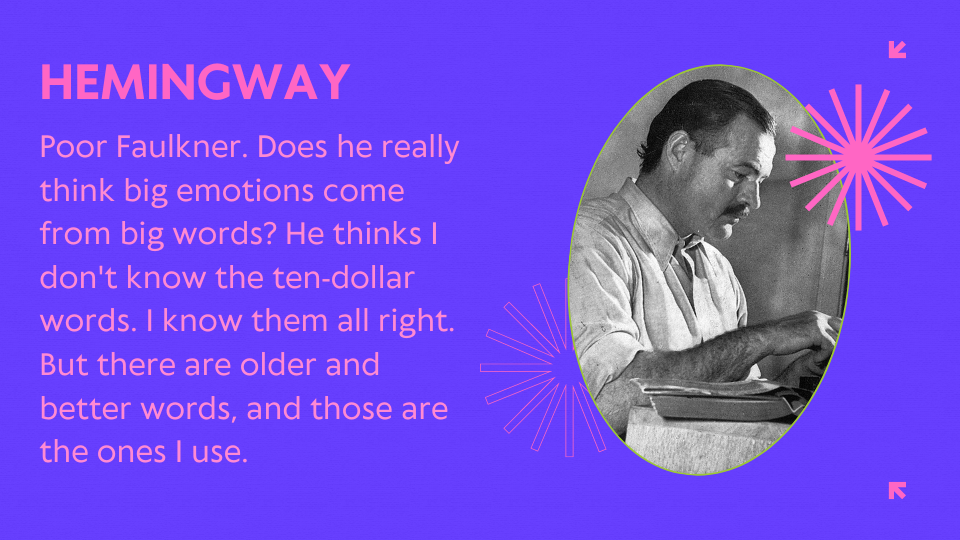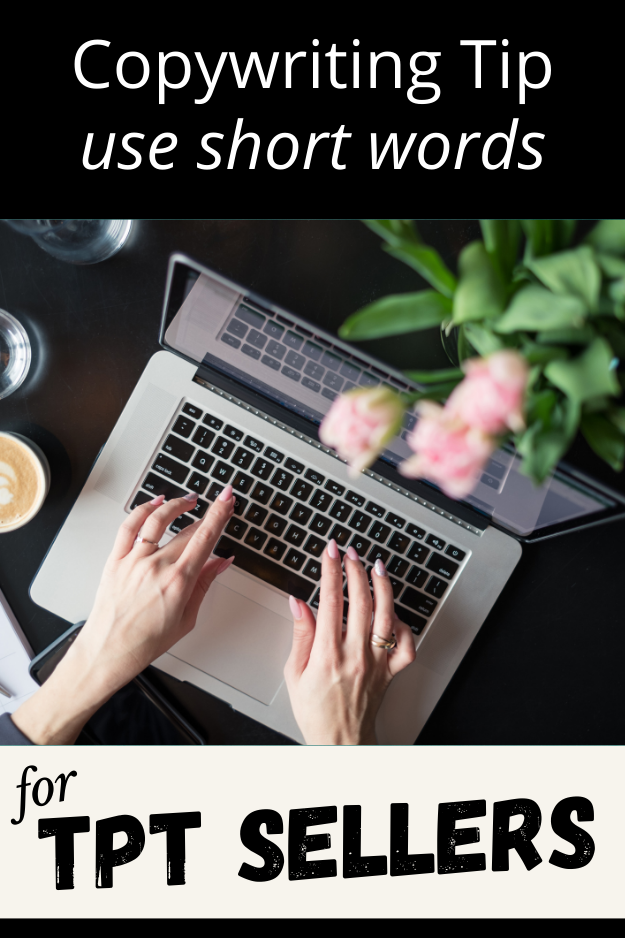When writing, people often use big words to impress people. But they rarely do.
Instead, big words distract our readers from our products. Words should be like windows; customers should look right through them and see what it is that we’re selling.
Watch this excerpt on short words from my course on copywriting
To learn more about my course on copywriting, click here.
What about Shakespeare?
Think of Shakespeare, who wrote large plays and invented many expressions that we still use today. But what was his most famous line? To be or not to be. Short words. Short sentence. Easy to understand. No complicated jargon.

Hemmingway and Twain
Here’s two more great illustrations from famous authors.
Earnest Hemmingway famously criticized another writer, named Faulkner, for using big words, thinking they were being impressive. He said they weren’t, and that there are better words to use. Hemmingway famously wrote great stories that are short reads and full of easy-to-understand copy.

Finally, Mark Twain was once challenged to a contest by another writer. The competition was to see who could write the shortest story that invoked a strong feeling. Twain managed to write his in just a few lines. It read, “Baby shoes for sale. Never used.”
Just two sentences (one of them is an incomplete sentence might I add, which we also talk about in my copywriting course.)
You too should use short and simple words in your copy. It will help you be clear, as well as relatable to your audience. Beyond that, short words will help you write short sentences, which is also good copy.
But most importantly, short words will help you sell more.
What about when Writing to Teachers?
You might think to yourself that you need to use big words because your audience is teachers. And teachers are smart and highly educated. So not only are they able to understand the big words, they like seeing them.
While that might be true to a small degree – that teachers like big words – those are the outliers. And there are outliers in every niche.
The truth is, teachers are people too. And just like people with other professions, teachers don’t prefer big words when they’re reading. They like the words to point them to the main idea. And, just like as we said above, big words get in the way. The goal is for the reader to not even notice the words that we’re using, they should only notice the product we’re writing about.
All of the above, including the video, is an excerpt from my course on copywriting. To enroll my copywriting course, click here.

